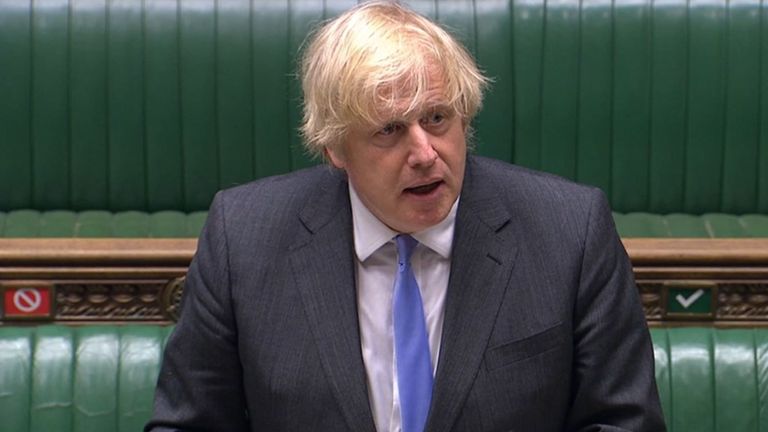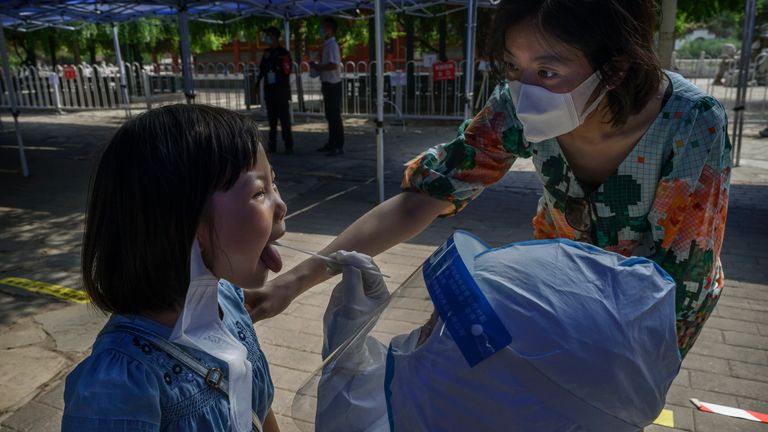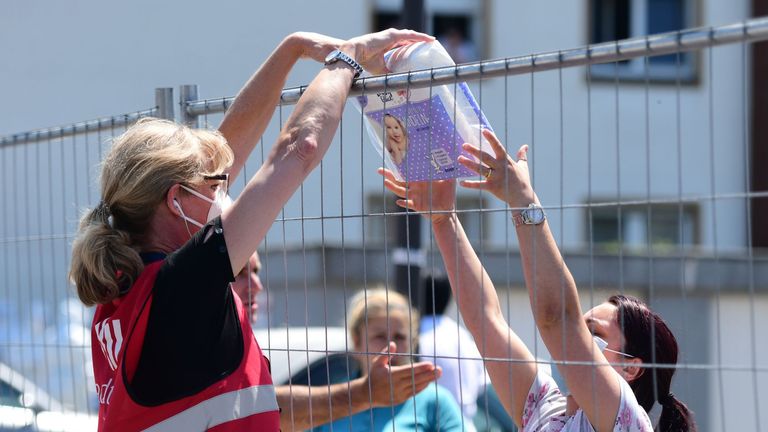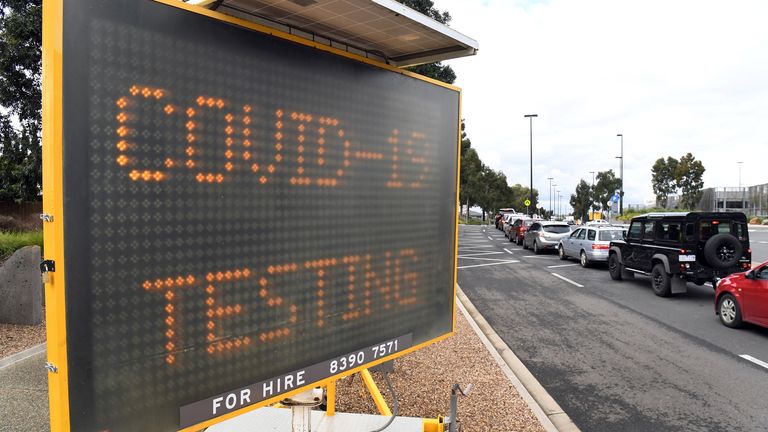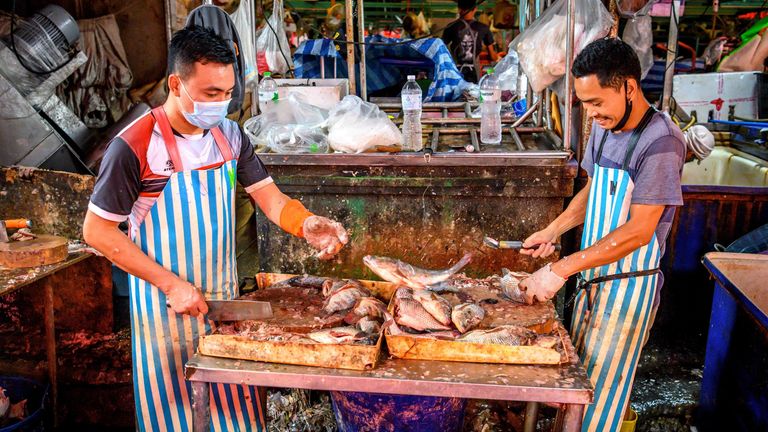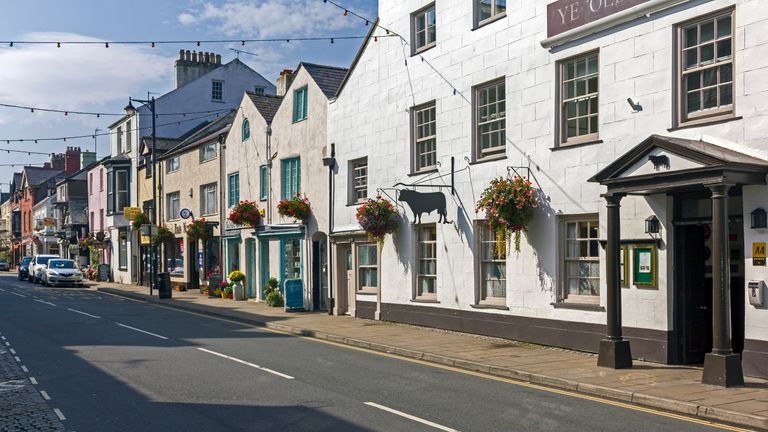Coronavirus: How different countries have dealt with local outbreaks of COVID-19
Boris Johnson has told MPs that “cluster-busting techniques” will be used to tackle local outbreaks of coronavirus.
As countries around the world deal with regional flare-ups of COVID-19, the prime minister said he was unsure why meat processing plants appear to be prone to such outbreaks.
Two such clusters have been found in the UK, while in Germany a county has been put back in lockdown after a coronavirus outbreak at a slaughterhouse.
The prime minister said the cold environment in such places may be helping the illness, while another theory is that staff are “congregating in such a way as to spread the virus”.
In order to help contain local outbreaks, pubs and restaurants in England will have to take customers’ contact details when they reopen on 4 July to enable tracing in the event of a flare-up.
But how have other countries been dealing with rising regional cases of COVID-19?
China
Tom Cheshire, Asia correspondent
There have been sporadic coronavirus outbreaks around China which have resulted in full lockdowns in cities.
Beijing handled its recent outbreak differently, however. Schools were shut and travel out of the city was curbed – but not banned.
Testing capacity was doubled in a short time and over two weeks, more than two million people were tested.
That was combined with a huge track and trace operation that used mobile phone location data provided by networks to the authorities.
They then deployed armies of volunteers to contact hundreds of thousands of people to make them get a test.
Germany
Michelle Clifford, Europe correspondent
Germans had been warned that restrictions could be reimposed if COVID-19 started to spread again and Guetersloh is the first area to be affected after 1,500 people at a meatpacking factory tested positive for the virus.
Authorities are desperate to prevent the disease reaching a wider area and are putting a population of around 360,000 into lockdown.
Bars, gyms and pools will be closed until the end of the month.
The R number rose dramatically at the weekend but public health officials were keen to stress that because the number of cases was relatively low in Germany, a localised outbreak like the one at the factory could impact the overall R significantly.
They will be carefully monitoring things to ensure the virus is contained.
Australia
The state of Victoria has recorded double digit rises in new infections, accounting for almost 90% of 126 new cases found nationwide in the course of a week.
People in the state capital, Melbourne, have been told not to travel outside their suburbs.
Australia’s chief medical officer, Brendan Murphy, said the recommendation was “simply an advisory – a
strong advisory”.
Talking to ABC radio, he said: “If you are coming from interstate and you have family in one of those areas, we would prefer you not to come and visit that area and potentially take the virus back.”
The state government said the rise in cases had been caused by family get-togethers attended by people with mild symptoms, and by people going shopping while awaiting test results.
Thailand
Rachel Thompson, SE Asia producer
Bars, schools, cinemas and sport venues shut down in mid-March after two clusters of COVID-19 cases were identified in Bangkok.
Within days, the Thai capital’s glittering shopping malls also closed their doors.
The Thai government was so determined to stop the spread of coronavirus from the capital that it even cancelled the most important holiday of the year, Songkran, to limit travel.
The “soft” lockdown was supposed to be for 14 days but further restrictions were brought in.
Thailand started easing its lockdown at the beginning of May in phases. It has now been almost a month since the country reported a local case of COVID-19.
UK – Anglesey
One part of the UK where there could be a local lockdown is Anglesey in north Wales.
Some 175 workers at the 2 Sisters chicken plant in Llangefni on Anglesey in North Wales have now tested positive for COVID-19.
Work was halted at the site last week and every one of the 560 employees has been asked to get tested for coronavirus and go into self-isolation.
The island is connected to the mainland by just two bridges across the Menai Strait.
Leader of Isle of Anglesey County Council, councillor Llinos Medi, told Sky News: “We won’t be pushed to make wrong decisions, we will make them on evidence.”
Source: Read Full Article
